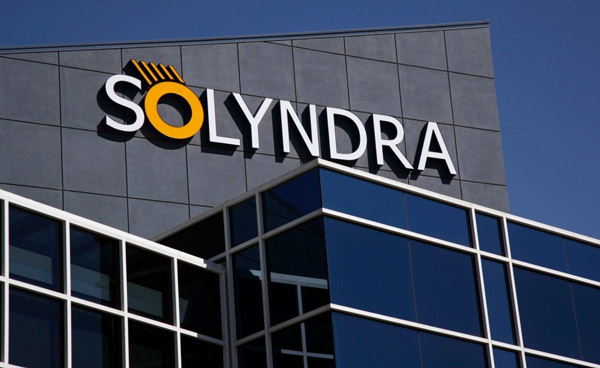


Chinese photovoltaics (PV) maker Yingli Green Energy said Monday it has reached a settlement on the antitrust trade practice lawsuit filed against it by the 'scandalous' Solyndra Residual Trust in the US.
Under the terms of the agreement, Yingli will make an immediate payment of $7.5 million to Solyndra so that the lawsuit against them is dismissed with prejudice. Solyndra will also release Yingli and all of its affiliates from any similar claims or allegations in the future, according to the press release.
Also as part of the deal, Yingli and its affiliates will be required to make an additional one-time payment of $10 million to Solyndra if their shipments to the US and Canada reach or exceed 800 MW in a single calendar year between 2016 and 2018.
Solyndra was a solar panel manufacturer based in California, U.S. The startup firm took over $500 million from US government’s loans and then went bust. After Solyndra went out of business four years ago, filing for bankruptcy protection and firing most of its 1100 employees in August 2011, the company started eying Chinese solar companies in addition to U.S. taxpayers to pay for its losses.
The firm claimed that Chinese panel makers worked together to fix prices and flood the American market with low-cost solar panels to stifle competition. It filed lawsuits “for the loss of the $1.5 billion value of its business and more which defendants destroyed,” according to a complaint in October, 2012. The failed startup carefully chose a time when the US was undergoing key stage of its presidential election and investigation on US anti-dumping probe was put on Chinese solar panel manufacturers to file this lawsuit.
Solyndra also settled a claim with Trina Solar Ltd., which is based in Changzhou, China, last November for $45 million, which led to the panel maker’s first loss since 2013. It is also suing Suntech Power Holdings Co Ltd. which is based in Jiangsu, China, for $20 million.
Chinese media has generally regarded the act by Solyndra a scoundrel-like blackmail. Knowing that the Chinese companies would rather pay to avoid long-term burdensome lawsuit in a foreign country, they could launch anti-dumping charges at any random companies whose sales performance is better than Solyndra. The incident also tells how rascally some American institutions can be, and let it serve as a warning for Chinese firms who do an honest job on this “land of the free”.
 The evolution of J-10 fighter
The evolution of J-10 fighter Top 10 Asian beauties in 2016
Top 10 Asian beauties in 2016 Train rides through blossoms
Train rides through blossoms HD pictures of battleships of PLA Navy
HD pictures of battleships of PLA Navy East Sea Fleet conducts combat drills
East Sea Fleet conducts combat drills Sophie Marceau goes square dancing in Guangzhou
Sophie Marceau goes square dancing in Guangzhou Police officers learn Wing Chun in E. China
Police officers learn Wing Chun in E. China Charming models compete in super model contest in Beijing
Charming models compete in super model contest in Beijing Beauties wearing Tang dynasty costume pick tea leaves
Beauties wearing Tang dynasty costume pick tea leaves Top 20 hottest women in the world in 2014
Top 20 hottest women in the world in 2014 Top 10 hardest languages to learn
Top 10 hardest languages to learn 10 Chinese female stars with most beautiful faces
10 Chinese female stars with most beautiful faces China’s Top 10 Unique Bridges, Highways and Roads
China’s Top 10 Unique Bridges, Highways and Roads Racing to the self-driving car
Racing to the self-driving car Consensus needed to impose pressure on Pyongyang
Consensus needed to impose pressure on Pyongyang Suu Kyi meeting heralds good beginning for Sino-Myanmar ties
Suu Kyi meeting heralds good beginning for Sino-Myanmar ties Chinese tourists walk in footsteps of Marx and Lenin in UK, Russia
Chinese tourists walk in footsteps of Marx and Lenin in UK, RussiaDay|Week